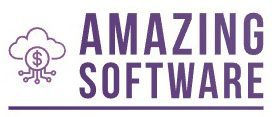How They Collect Data
Businesses that collect consumers’ personal information, repackage it, and then sell it to interested stakeholders characterize as data brokers. Today, there is a thin level of publicity that data brokers face over their dark arts and how little authorities can do to regulate them. One of the serious concerns with this industry is its scope and depth in terms of the mechanisms for data gathering. These companies use automated processes that crawl the web for publicly available data such as property records, marriage certificates, and other public documents. Moreover, they often offer their SDKs for free to app developers in return for the apps’ collecting data through usage. Again, this raises concerns—about transparency and control of the data owned by an individual—into the light.
Data brokers also conduct data analytics to compile statistical inferences from numerous collaborations of data sets. For instance, it would combine information on age, zip code, property records, and financial records to guess a person’s income class. This mass data collection often goes unnoticed by the consumer, and if they do know, then the details are usually obfuscated in privacy notices.
The Various Uses of Collected Data
Data brokers provide data underpinning a wide swath of societal needs, such as background and credit checks for prospective landlords and tenants, airlines, and frequent travellers who use services like Clear to expedite airport security screenings. Some companies buy data from data brokers or collect it directly, and they also provide tools that investigative authorities use in their investigations. The detailed categories into which data brokers sort people can be innocuous and sensitive. For instance, among these lists are categories like “Dog Owner,” “Winter Activity Enthusiast,” and “Mail Order Responder.” The potentially sensitive categories focus on the ethnicity and income levels of, for example, “Urban Scramble” and “Mobile Mixers,” which indicate a high concentration of Latinos and African Americans with low incomes. Other categories point to specific health conditions or political affiliations, raising ethical concerns about using this data.
Ethical Issues and Vulnerable Populations
Data brokers’ business practices can be especially harmful to older people, low-income families, and racial and ethnic minorities. This concern stretches into political affiliations, particularly now that political campaigns have drastically ramped their use of personally identifiable information. For instance, the 2012 presidential campaign for Barack Obama began matching voter registration data to files of political donation information and consumer data to generate highly personalized campaign ads. Similarly, Donald Trump’s campaign in 2016 turned to Cambridge Analytica, which harvested the data of around 50 million users of Facebook and developed tools for psychological profiling and manipulation.
Moreover, data brokers keep personal information for eternity, even after it has become outdated. This raises concerns about the long-term effect that collection may have on individuals and the heightened possibility of a data breach. The prominent security incidents in data broking revealed sensitive information of a personal nature, which, if it reached misguided hands, might have serious consequences.
Legal Framework and Future Directions
The legal landscape for data brokers is broad and fragmented. There is no general federal law regulating data brokers in the US. Although state-specific laws differ, some—like California’s Consumer Privacy Act—give consumers the right to get a copy of their data and for it to be erased. The Fair Credit Reporting Act is Congress’s attempt to have some control over data brokers. Still, the industry has been under attack for opacity and little transparency in how it goes about business.
There is a pressing need for comprehensive federal data privacy and security legislation to protect Americans’ data. This is part of why the Consumer Financial Protection Bureau issued a Request for Information to fully understand the scope and breadth of this industry and its players and whether all data brokers play by the same rules. There should be stakeholder responses that provide data, analysis, research, and other information on data brokers so that the CFPB can be well-informed in administrating the law and ensure compliance with the law.
Largest Data Broker Companies
Some of the largest data broker companies are Experian, CoreLogic, Epsilon, Acxiom, and LiveRamp. They collect financial data on persons and return customer data with credit scores used by nearly every significant lender. They also offer customer data analysis services to help them extract helpful information from their internal data.
While Experian is famous for credit monitoring and reporting, CoreLogic caters to the insurance, mortgage lending, and real estate businesses by offering consumer information to clients. Epsilon connects demographic information to every lead’s offline purchases and online activities with a “connected identity” for use by its clients in marketing. Acxiom provides customer and audience insights data, predictive analytics, and data segmentation for targeting marketing campaigns to specific leads. LiveRamp works on ethics in data use through self-regulation for the ethical use of data.
How to Stop Data Brokers from Selling Your Info
Although there are concerns raised over data brokers, there are steps individuals can take to prevent their personal information from getting scooped up and sold. Opting BlockShopper Opt Out of data collection by modifying privacy settings within a Website or an application, installing privacy-protecting browser extensions, and being careful about divulging personal information can go a long way. People can write public comments to regulatory agencies like the CFPB to describe their experiences and push protections forward.
